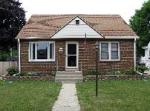 Seniors need money for a variety of reasons including home repairs or modifications, medical expenses, home care, long term care, taxes, insurance, cash for emergencies, covering mortgage payments, a reliable car, everyday living expenses and even just maintaining their lifestyle. There are always options to consider and they should be reviewed when making important decisions especially when they are big decisions such as doing a reverse mortgage.
Seniors need money for a variety of reasons including home repairs or modifications, medical expenses, home care, long term care, taxes, insurance, cash for emergencies, covering mortgage payments, a reliable car, everyday living expenses and even just maintaining their lifestyle. There are always options to consider and they should be reviewed when making important decisions especially when they are big decisions such as doing a reverse mortgage.
Before looking at some of the other options let’s define a reverse mortgage. The most common reverse mortgage is the FHA insured Home Equity Conversion Mortgage or HECM offered through HUD. A jumbo or proprietary/private reverse mortgage may be available in some states (not available in Minnesota). A mortgage like a conventional mortgage, a reverse mortgage is a loan against one’s home using the equity now with the home as collateral, however, the reverse mortgage has special terms for those 62 and older. The amount loaned is based on the age of the borrower, the home value and an expected rate rather than on one’s credit score and income. The older one is the more funds they can receive. Just like a conventional mortgage, the homeowner remains on title – the bank does not own the home.
Proceeds from the reverse mortgage can be taken as monthly payments, line of credit, lump sum or a combination of these. Monthly mortgage payments aren’t required but the loan is due and payable when the home is no longer one’s primary residence. In the case of a joint tenants as long as one is still in the home as their primary residence the loan is not due until both have left the home as their primary residence. The due date on the mortgage is the 150th birth date of the youngest borrower.
Another benefit of the reverse mortgage is the fact that it is a non-recourse loan which means there is no personal liability to the borrower or their heirs as long as they are not retaining ownership. In other words if the loan balance due on one’s home is $250,000 but the home can only be sold for $200,000 the borrowers or their heirs are not required to come up with the difference of the $50,000 as long as they are selling the home and not keeping it in the family. The opposite also is also a benefit, if the home is sold for more than the loan balance, the borrower or the heirs receive the difference.
Social Security and Medicare are not affected and one can still receive Medicaid or Minnesota’s Medical Assistance as long as the loan proceeds are structured properly. Because the funds are considered loan proceeds, not income, generally the IRS does not consider the reverse mortgage proceeds as income for tax purposes. Additionally reverse mortgages are more highly protected than any other financial option available.
Now let’s look at some other options.
- State and Community programs for special purposes such as home repairs. There may be some options for low or no interest loans or grants to help seniors or those with low-income have funds for home repairs. These are often forgiven if you are in the home for a period of time such as 10 years. This can be a great option if one only needs funds for repairs such as a new roof or repair a bathroom. Unfortunately the funds for these programs are not as readily available. Additionally we have found that seniors often have more needs than just home repairs such as they have credit card debt or their Social Security just isn’t enough for meeting their living expenses.
- Property tax deferrals. If a senior is having difficulty paying their taxes they may qualify for a property tax deferral. This is a program that allows property taxes to be deferred or delayed until one sells their home. This can be a great option if paying taxes is the only issue. Again, seniors often have a need for more cash than just covering their taxes.
- Liquidation of stocks, bonds, 401Ks, and/or other investments. If one has other investments this may be an option which would have no outside approval needed and possible minimal costs to access the funds although there may be penalties and/or tax consequences. Things to consider is there enough funds to meet the needs of cash? And is it better to keep those investments until when the value increases (opportunity costs). When liquidating other investments one may lose the additional financial security.
 Sale of other assets, for example lake home, RV, boat, real estate property. This may provide extra cash although it may be difficult or time consuming to sell and may not provide enough funds for their needs. Additionally it may reduce one’s quality of life.
Sale of other assets, for example lake home, RV, boat, real estate property. This may provide extra cash although it may be difficult or time consuming to sell and may not provide enough funds for their needs. Additionally it may reduce one’s quality of life.- Loans from relatives. Loans from relatives can be an easy transaction to complete, cost effective, i.e. no or low interest and possibly no or low payments. Is there a relative who will loan the money? Will the loan be enough to meet one’s needs? What happens if the relative’s life changes, i.e. they have medical issues or lose their job and they need money for their own needs – will they require the senior repay the loan and how will this be done? How will this impact the senior at this point? What will it do to family relationships?
- Relative becomes “bank” and provides loan using home as equity. As noted above, it could be an easy transaction, credit and income may not be considered, and it could be cost effective with a lower interest and low payments. The above questions and concerns should also be considered when doing this type of transaction. When doing this type of arrangement I would recommend setting up legal documents to reflect terms of the loan just as with a loan from a professional lender would do.
- Sell home to relative or investor and lease or rent back. This can have the same advantages as I noted above. As pointed out above, I would recommend setting up legal documents to reflect terms of the loan just as with a loan from a professional lender would do. And again the same concerns that I pointed out above should be considered before entering this type of arrangement. If it is a lease back/rental situation what happens when the senior can’t make the payments? Will they be forced to leave their home? If the relative is doing the loan and their situation changes they may not be able pay the mortgage on the home they may need to sell the home or they could face foreclosure. This will be a difficult situation for all parties involved and hurt the family relationships. If the investor’s plans or goals change they may decide to or need to sell and then what happens to the senior?
- Selling, moving and renting. This could provide one with access to all equity in the home with no restrictions on the use of the funds. If one is in a home too large to manage or it is no longer safe for them to be in the home and they can’t afford the home care, this may be the best option. Things to consider are the costs of selling, how disruptive will the selling and move be since seniors want to stay in their home with familiar surroundings. Where are they going to live and will the funds be enough to cover the living expenses now and in the future especially if they are renting. Will their quality of life be reduced if they want to stay in their neighborhood. Selling and receiving all funds in a lump sum could affect receiving government benefits such as Medical Assistance.

- Moving in with children or other relatives. Selling and moving in with children or other relatives could provide extra cash as well as support or care by their loved ones. Things to consider would be if the children have space for their parent(s) to move in with them. Do the children have time to provide the extra care? Can they afford to give the extra support to their parents? What will it do to the family relationships? Seniors don’t want to rely on their children so how will this impact the senior?
- Home sharing. Remember the TV show “The Golden Girls”? Setting up a home sharing situation could be an advantage to increase cash flow as it would reduce expenses by sharing costs. Another advantage could be having someone else around. If the senior is selling and moving in with someone else consider the costs of selling and moving, the disruption to their lifestyle, and living with someone else. If they are the one renting will they have enough funds to cover living expenses in the future. And how will it impact the receipt of government benefits?
- Line of credit or Home Equity Line of Credit (HELOC). A line of credit at a bank will allow one to borrower only what is needed and the initial loan costs may be low. They will be able to access the cash as the needed it. At this time it may be difficult to qualify because of their fixed income and/or credit. They may not qualify for enough funds to meet their needs and even if they have what they need now, will they need an additional loan for future needs? If they do qualify for a bank line of credit they will have to make payments and defeat the purpose of improved cash flow. And if life changes they may not be able to make the payments.
- Home Equity loan. This may be an option if one can qualify… to qualify one needs to meet the requirements of income, credit and ability to repay the loan which also determine the interest rate. One may borrow only what is needed, i.e. $30,000 and the loan origination fee is based on the actual amount of the loan. Historically the interest rate is higher than with a reverse mortgage. Being payments are required if life changes, one may not be able to make the payments and then may face foreclosure.
The reverse mortgage may be a bigger benefit to a senior than these options but before one makes the final decision, the negatives of the reverse mortgage should also be reviewed. Generally the negative is there will be less funds available for heirs or when the loan is being repaid because the loan balance is increasing as one is using the funds during the life of the loan and not making payments.
Another negative is the interest is not a deduction until it is paid generally at the time the loan is being paid off. Although payments can be made on the reverse mortgage and once the FHA Mortgage Insurance Premium is paid payments can be applied to the interest to receive a tax deduction on interest paid.
Closing costs are often perceived as high although they are comparable to a conventional mortgage. An explanation of the costs can be found at “Do You Understand The Reverse Mortgage Closing Costs?” and a comparison of the costs are at “Reverse Mortgage Closing Costs – High or Mythical?”
 Does the reverse mortgage have more pros over the other options? Reverse mortgage borrowers who have evaluated their options feel the positives outweigh the negatives because they want to remain in their home, live comfortably, have some “elbow room,” and be independent with financial peace of mind without being burden on their children. Usually the children are doing fine on their own and want their parents to eliminate their financial worries and enjoy their life more fully.
Does the reverse mortgage have more pros over the other options? Reverse mortgage borrowers who have evaluated their options feel the positives outweigh the negatives because they want to remain in their home, live comfortably, have some “elbow room,” and be independent with financial peace of mind without being burden on their children. Usually the children are doing fine on their own and want their parents to eliminate their financial worries and enjoy their life more fully.
© 2010 Beth Paterson, Beth’s Reverse Mortgage Blog, 651-762-9648
This material may be re-posted provided it is re-posted in its entirety without modifications and includes the contact information, copyright information and the following link: http://wp.me/p4EUZQ-nC
Related articles:
- Financing Retirement With A Reverse Mortgage
- You Need To Know Reverse Mortgage Borrowers Are Highly Protected!
- Using The Reverse Mortgage As A Tool To Strategically Manage One’s Assets
- I Want To Stay In My Home – Don’t Tell Me To Sell!
- Be Educated About Your Options of Care And Financing The Care
- A Reverse Mortgage or A Conventional Mortgage? That Is The Question.
- Is Waiting To Do A Reverse Mortgage The Best Decision?
- Reverse Mortgages Come To The Rescue for Senior Homeowners
- Know A Senior Who Wants Security, Independence, Dignity, And Control? A Reverse Mortgage May Be The Answer!
Blog posts’ information is current as of date post published, program is subject to change in in the future. Contact us for current information, 651-762-9648.
This site or the information provided is not from, or approved by, HUD, FHA, or any US Government or Agency.








 As with a conventional mortgage, there are costs associated with a reverse mortgage. While perceived as high, once understood you’ll see the reverse mortgage
As with a conventional mortgage, there are costs associated with a reverse mortgage. While perceived as high, once understood you’ll see the reverse mortgage 



